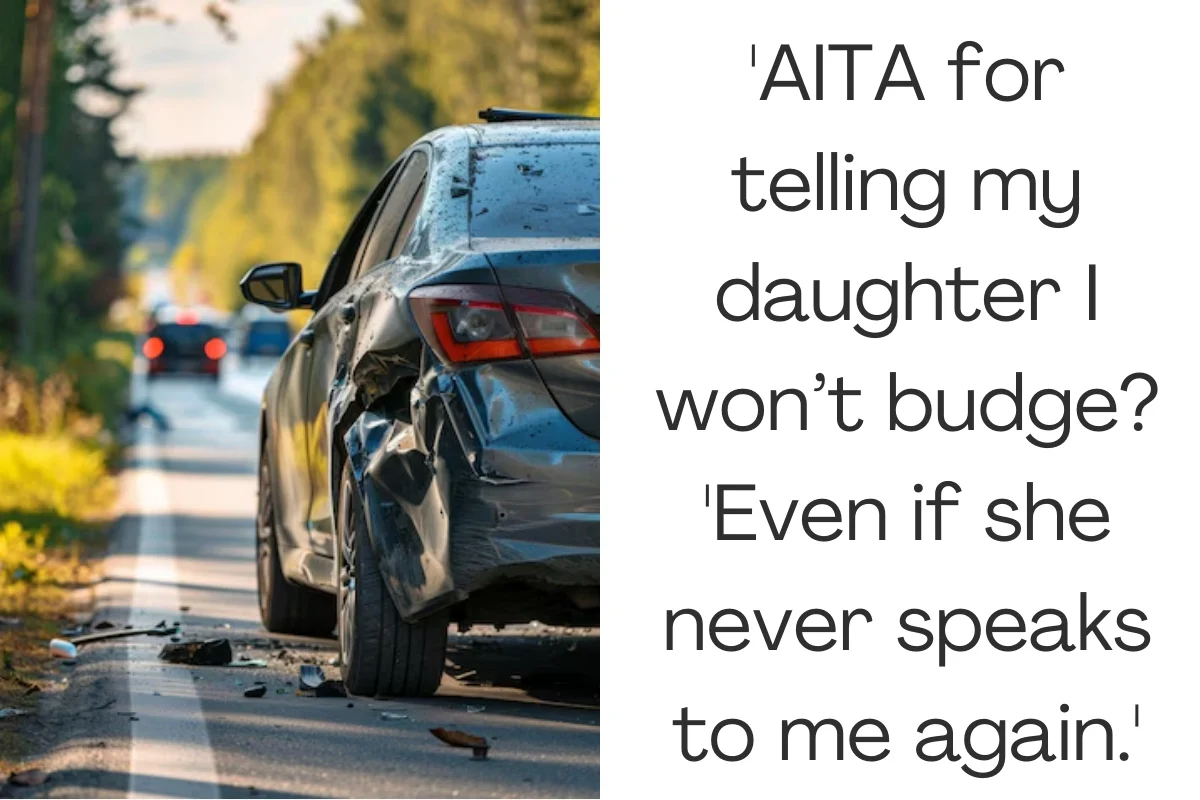A father is receiving criticism from his 17-year-old daughter Casey in a recent family conflict because he declined to rebuild her wrecked automobile. Casey painstakingly collected money for the car after her ADHD-afflicted younger sister Alana (16) was involved in an accident. Alana’s medical expenditures have worsened the family’s financial predicament, making an immediate replacement of the car unfeasible.
After the accident, Casey reacted severely, isolating herself from her family and only interacting when absolutely required. Casey insisted on having the automobile replaced during a family therapy session in order to get back on good terms with her family. Despite her ADHD, she recommended that her sister Alana work to pay for the replacement.

Because he and his wife are worried about Alana’s academic future, they have decided not to force her to work. They contend that it is unjust to put Alana’s schooling in danger in order to get Casey’s automobile replaced sooner. As a result of her stance, Casey has threatened to permanently break off contact with the family if her demands are not fulfilled. The father feels that caving in to emotional blackmail would be bad since it would be a dangerous precedent that would damage the family values.
The circumstance highlights how difficult it is to strike a balance between individual requirements, financial limits, and family relations. The father doesn’t waver in his resolve, putting the welfare of all his kids before caving in to Casey’s urgent requests. Significant worries have been raised by this choice over the possible long-term effects on family ties and the

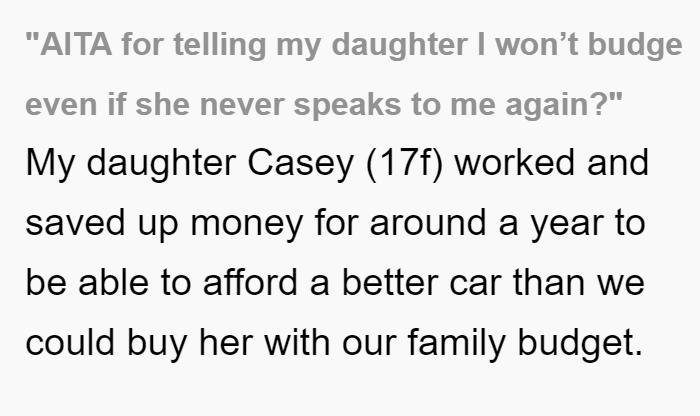
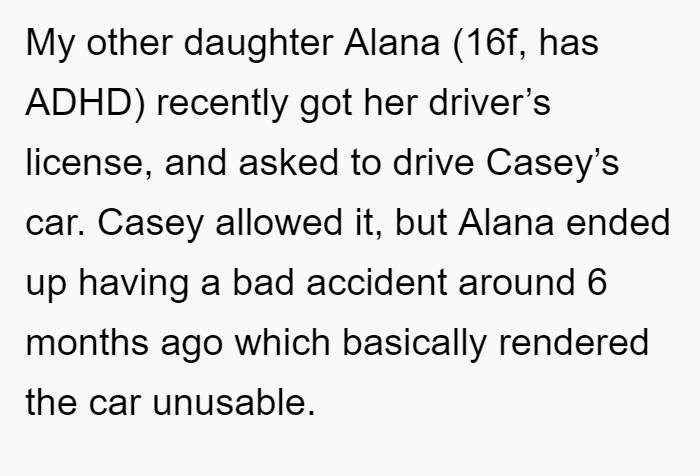
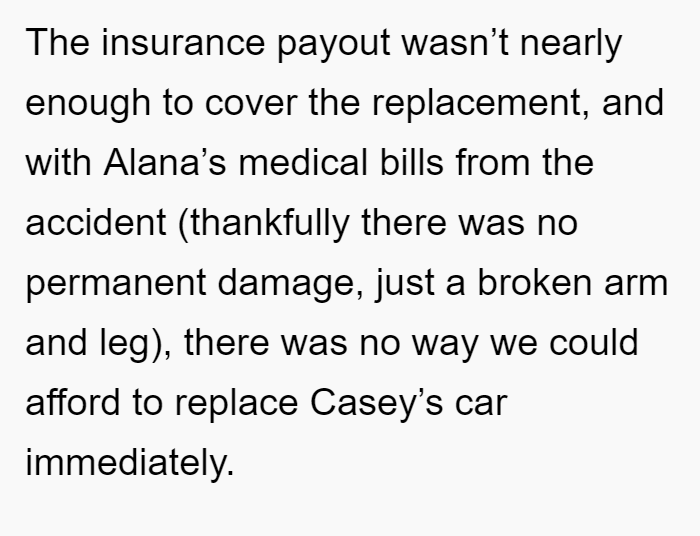


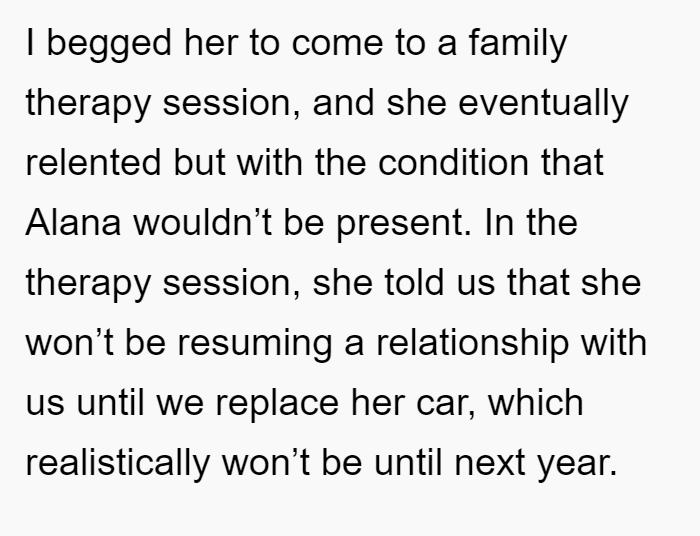
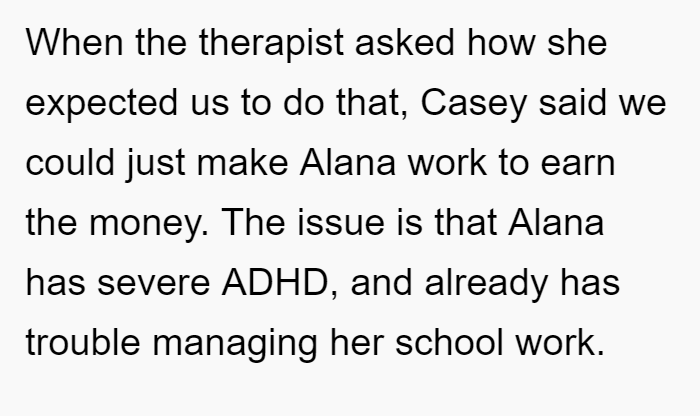
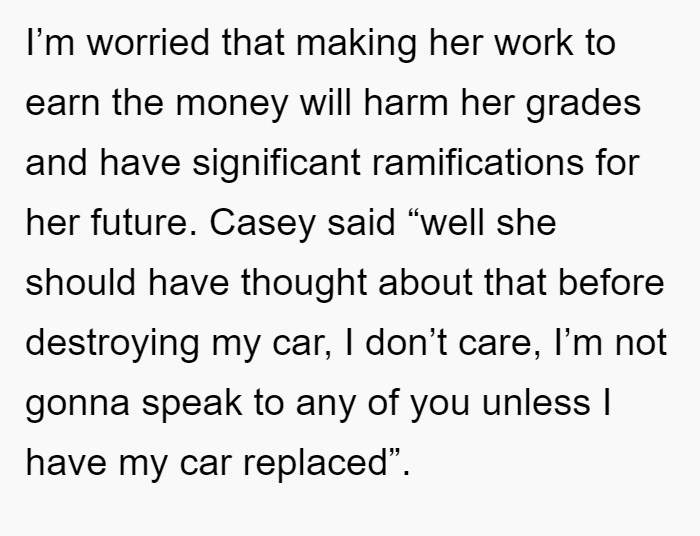

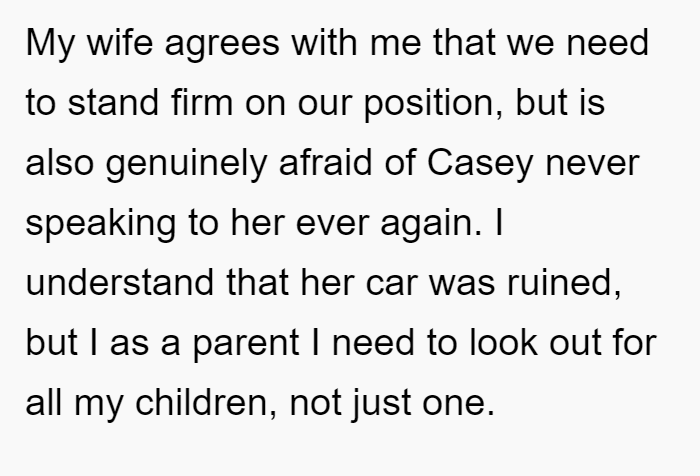
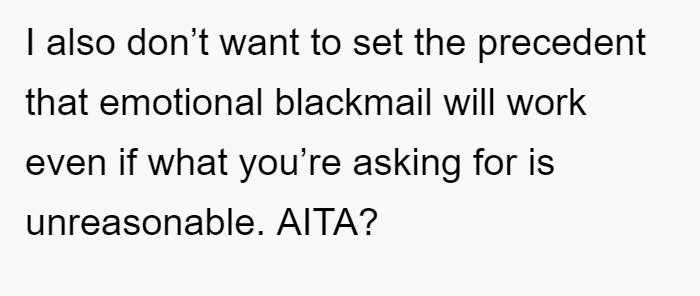
A contentious argument concerning a scenario in which one family member’s car was wrecked by another has surfaced in a recent conversation concerning family relations and accountability. The central problem is an automobile that one sibling bought and that another sibling later destroyed. The family is at a loss for how to deal with the incident’s financial and psychological fallout.
The car was destroyed by their sister, despite the fact that the original owner spent a lot of time and money buying it. The family’s method of handling the matter has sparked claims of unfairness and partiality. Critics claim that the family is ignoring the other child’s legal recompense in favor of the future of one child.
Here’s what top commenters had to say about this one:
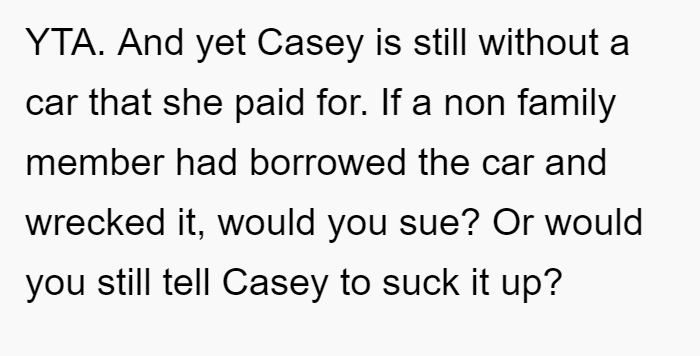
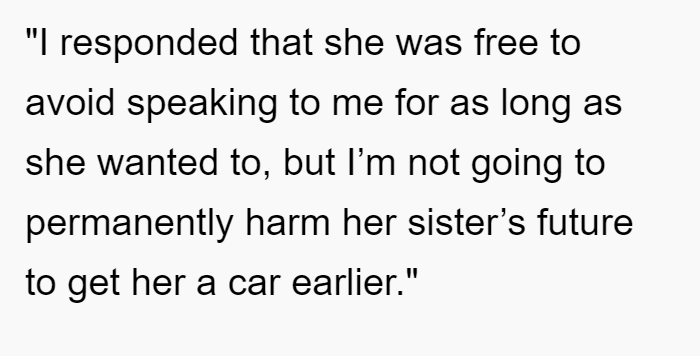
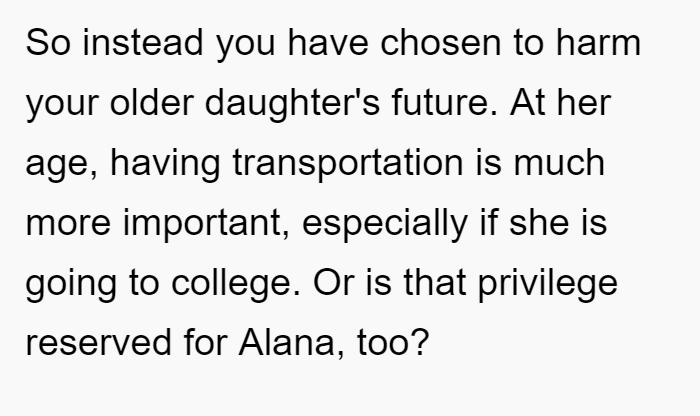
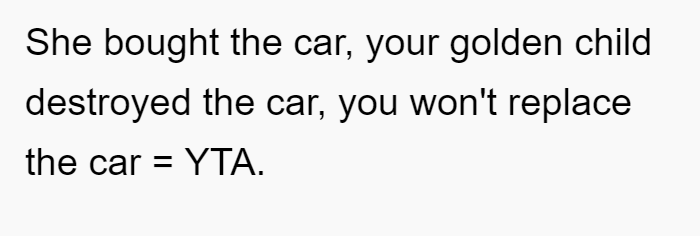

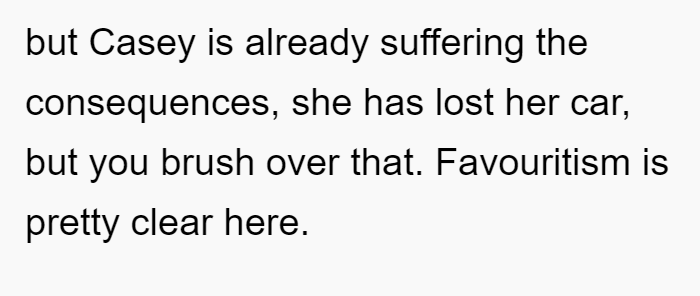
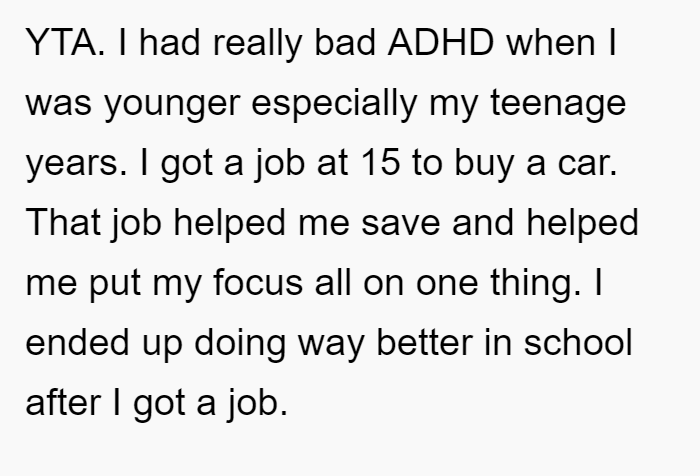
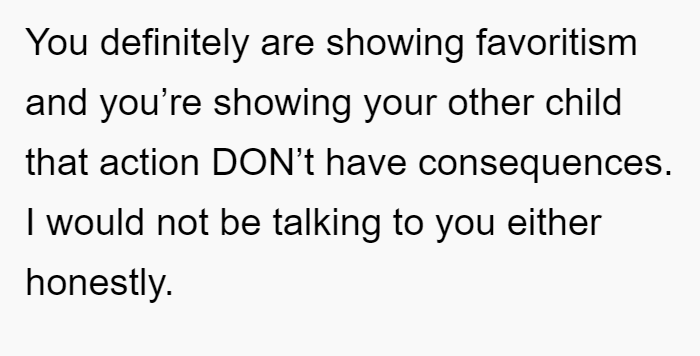
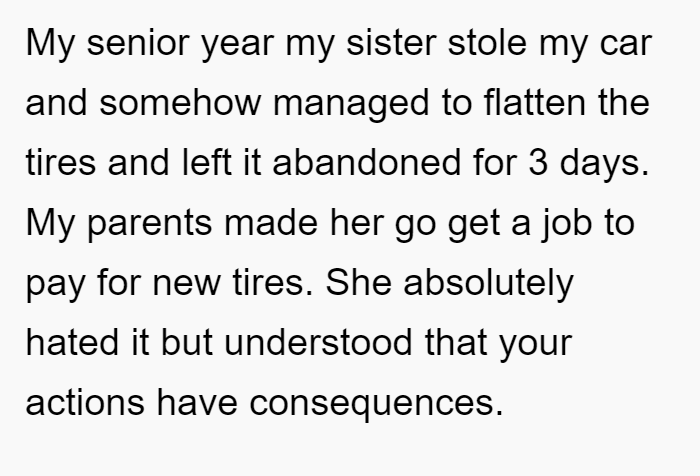

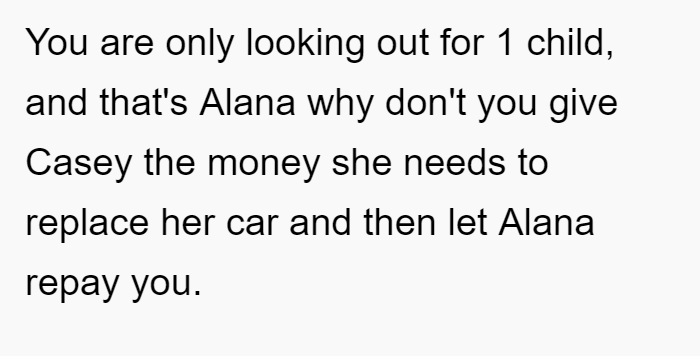
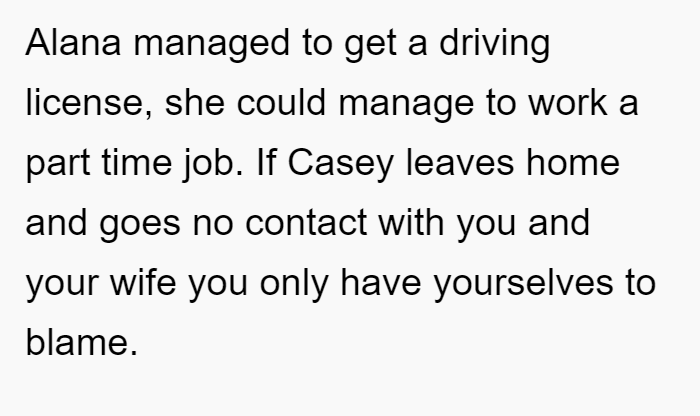
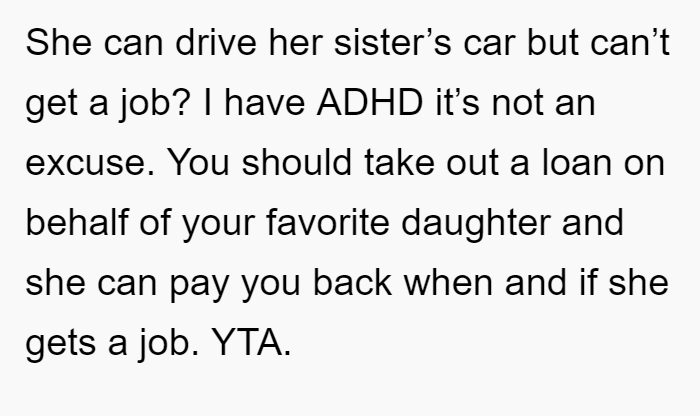
ALL IN ALL!
Due to a car accident, the author’s ADHD daughter Casey has avoided them and their family for a year. The replacement cost was more than Alana’s medical expenditures, and the insurance payout was insufficient to pay for it. Casey has been dodging them, acting as though they are unconnected. She consented not to speak to them until the automobile was replaced, despite the author’s persistent pleas for her to join a family therapy session. The author worries that Alana’s future and grades would suffer if she is forced to work for pay. While she is willing to remain steadfast, the author’s wife worries that Casey won’t communicate with her ever again. The author thinks that emotional blackmail can be effective, but parents need to put their kids’ welfare first.
